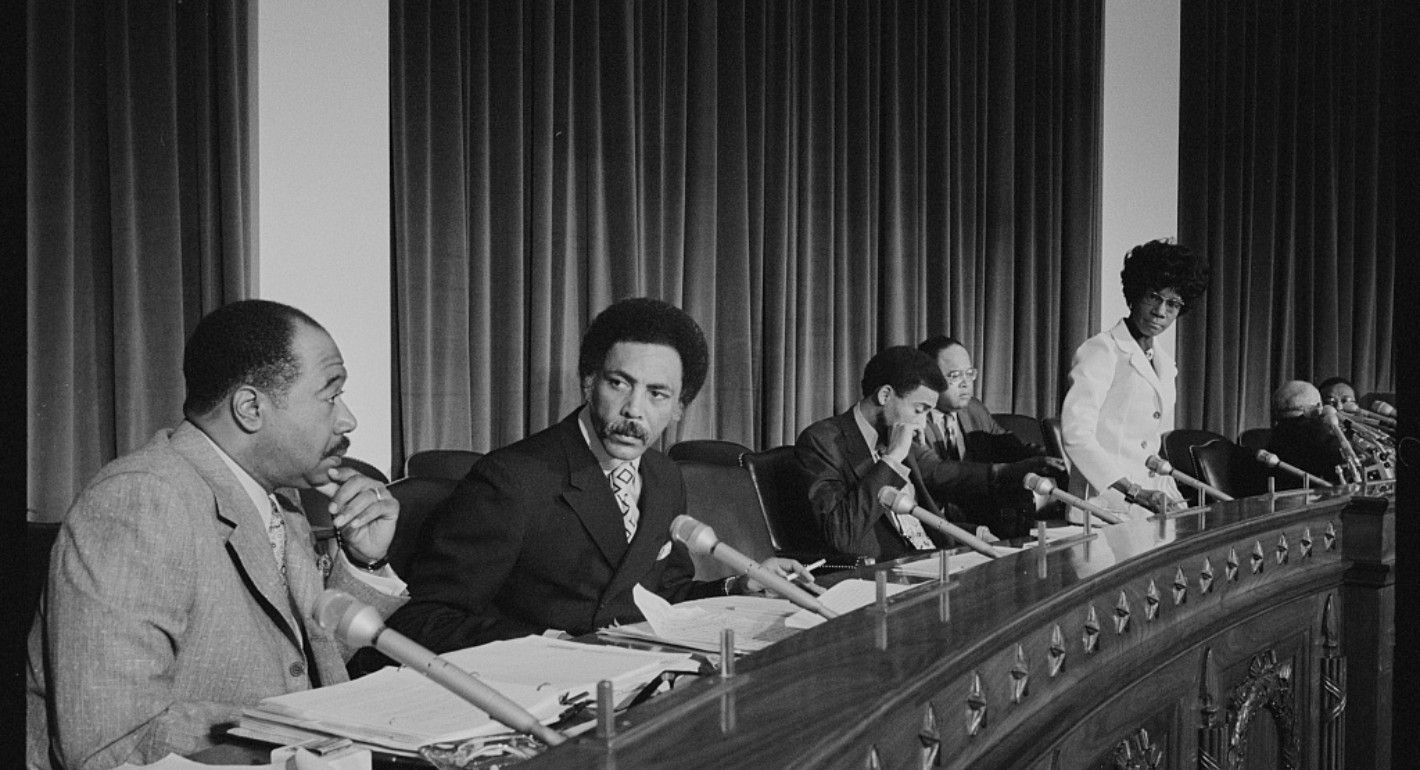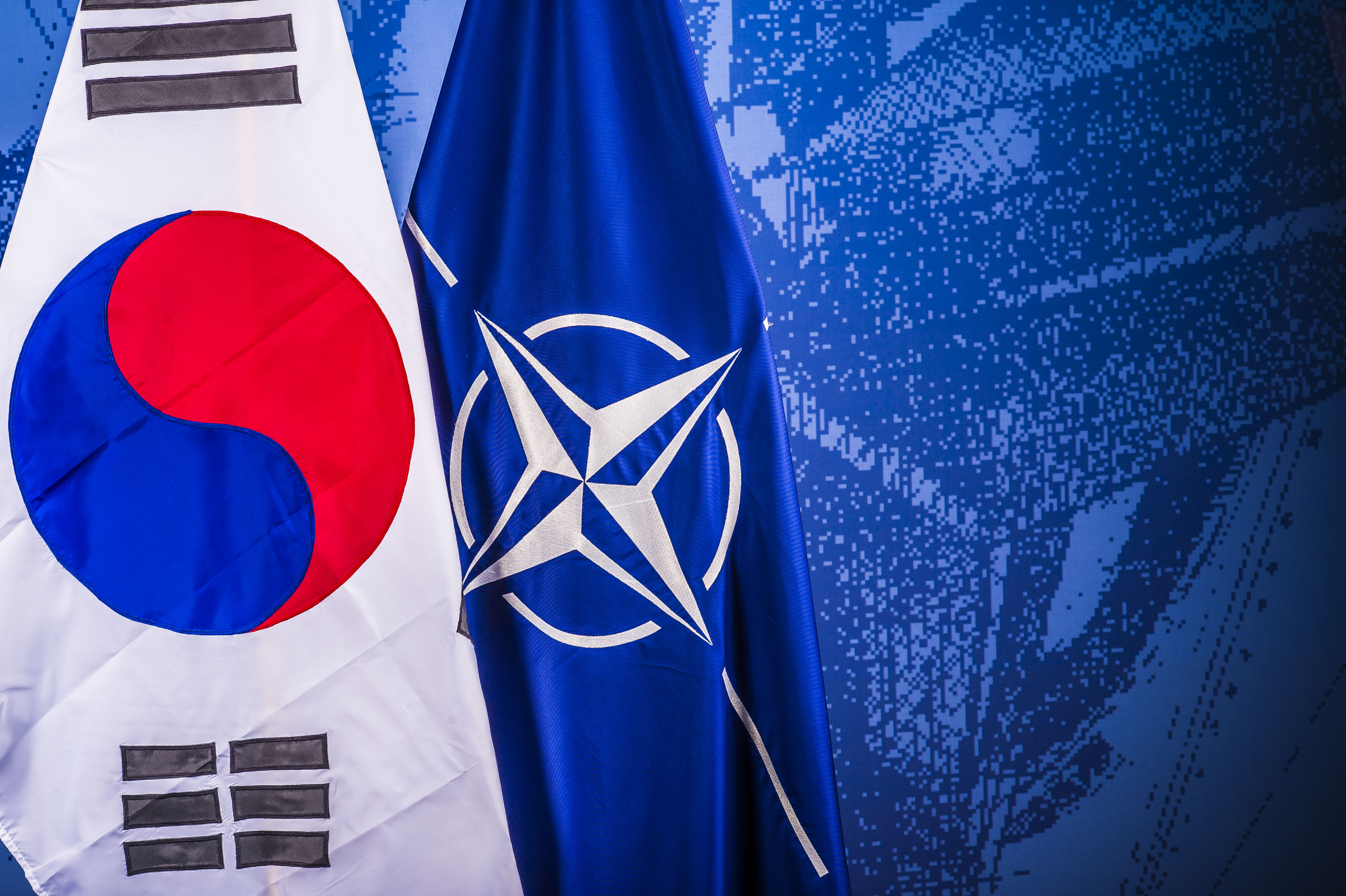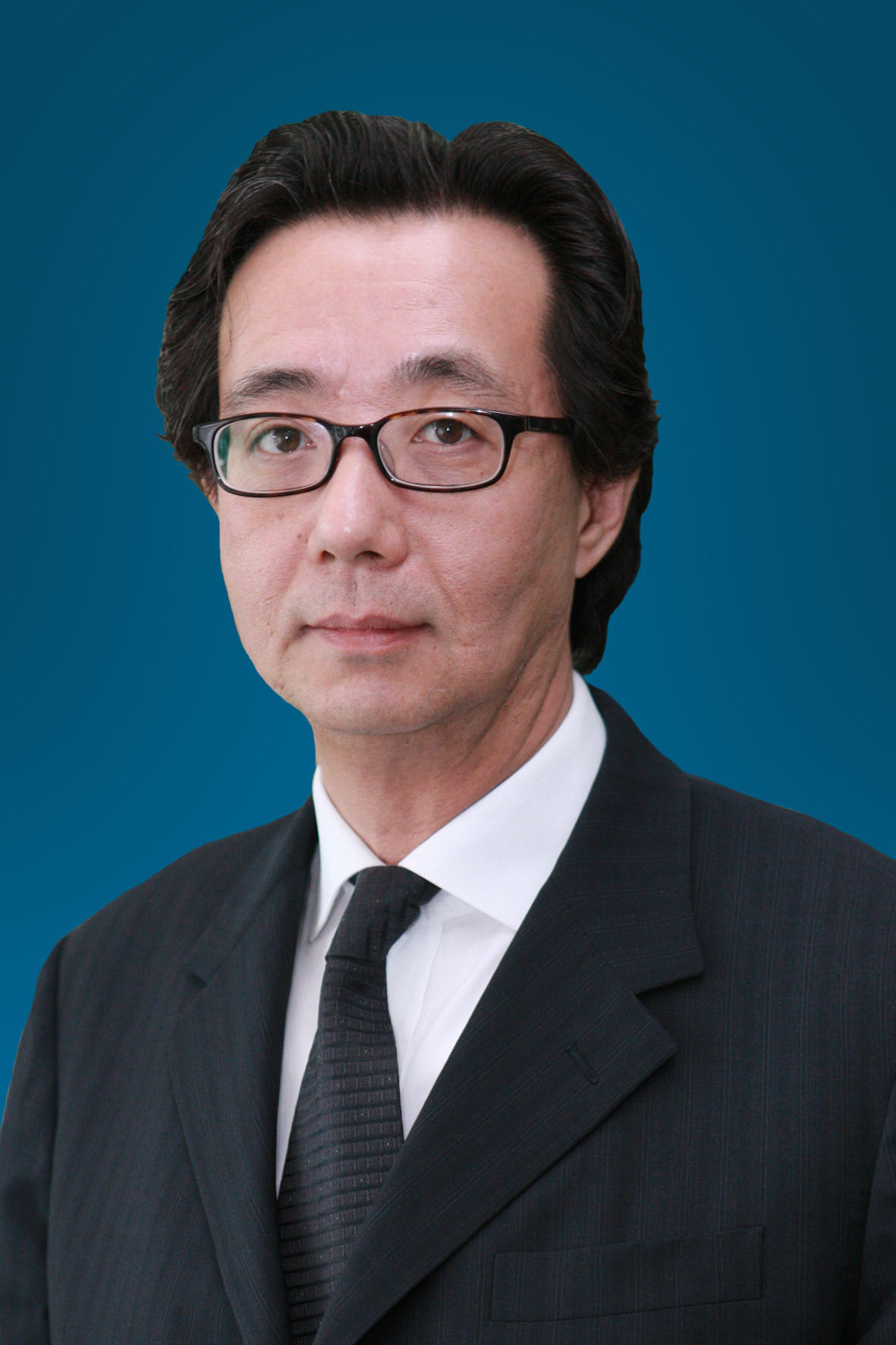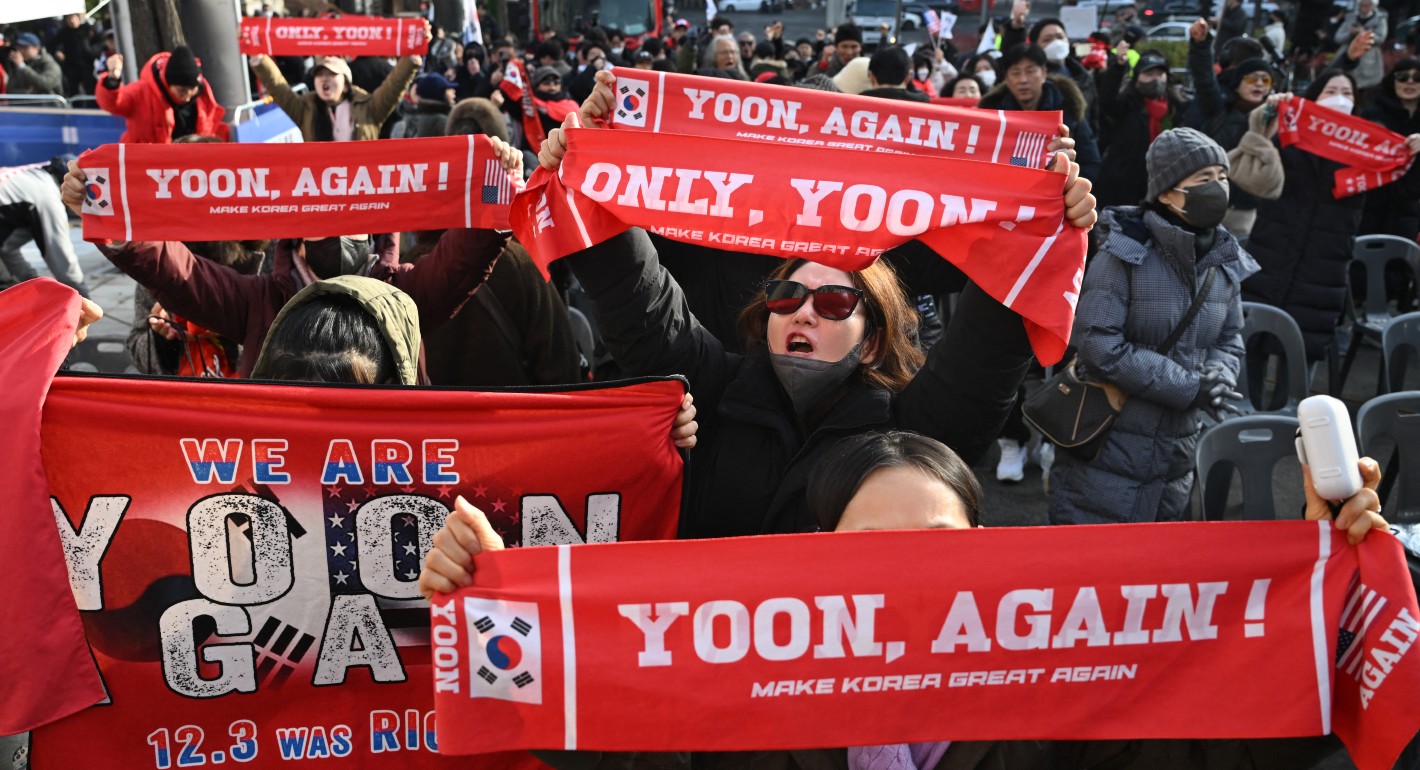In moments of domestic inflection and shifts in global order, members of the Congressional Black Caucus (CBC) have served as thought leaders, taking principled dissenting positions on the direction of U.S. foreign policy. During the Vietnam War, then congressman Ron Dellums emerged as a leading voice in Congress—first advocating for a rapid withdrawal from the conflict and later mobilizing support for anti-apartheid sanctions in South Africa. Decades later, in the wake of 9/11, then congresswoman Barbara Lee cast the lone vote against the Authorization for Use of Military Force (AUMF)—a decision that, though unpopular at the time, laid the groundwork for a growing bipartisan effort to rein in executive military authority. These historical moments speak to an important tendency in U.S. foreign policy debates: Some individual members hailing from the CBC have served as a critical force within Congress, helping to create space for substantive democratic debate on questions of war, peace, and U.S. international engagement more broadly.
Given mounting global challenges and evolving public views about America’s current role in the world, this is an opportune moment to reflect on historical examples of congressional thought leaders who pushed for a more disciplined U.S. foreign policy. From Vietnam to post-9/11 military action, these members not only challenged foreign policy orthodoxy but also enlisted support from their CBC colleagues and built broader coalitions to amplify their causes. From their well-positioned seats, these representatives’ willingness and persistence in opposing dominant views proved essential to making progress on issues that, at the time, lacked broad political support. This tradition of thought leadership could help inspire members of Congress to sustain a free and open debate on how the United States ought to approach complex challenges in the Middle East, the Western hemisphere, and Africa.
From their well-positioned seats, these representatives’ willingness and persistence in opposing dominant views proved essential to making progress on issues that, at the time, lacked broad political support.
Ron Dellums: From Vietnam War Opposition to Anti-Apartheid Leadership
Elected in 1970, Dellums (who died in 2018) quickly emerged as a leading progressive voice in Congress, willing to challenge Washington’s foreign policy consensus. Like many of his Bay Area constituents, Dellums was a staunch critic of the Vietnam War and believed that the “profoundly immoral acts committed in the name of U.S. national security”—referring to human rights abuses against the Vietnamese people—warranted, among other responses, an immediate end to U.S. involvement in Vietnam. By the early 1970s, much of the American public had grown disillusioned with the war, and many in Congress, as well as then president Richard Nixon himself, believed a withdrawal of U.S. troops was necessary.
However, during this period, an anti-war coalition had emerged in Congress, led in part by Dellums, who called for an immediate troop withdrawal from Vietnam rather than a gradual drawdown. This coalition included several other members of the newly formed CBC, such as representatives Shirley Chisholm, Charles Diggs Jr., John Conyers Jr., and Parren Mitchell. Nixon’s preference for Vietnamization—which favored a gradual U.S. troop withdrawal and strengthening South Vietnam’s military—meant that the pace of the withdrawal would be slower than the anti-war coalition preferred.
Dellums’s embrace of a progressive anti-war stance—that is, favoring an immediate withdrawal rather than Vietnamization—carried political risks, ultimately landing him on Nixon’s “enemies list,” a document created by administration officials to identify individuals they wished to target for opposing their policies. This speaks not only to the importance of dissenting voices in U.S. foreign policy but also to the risks of publicly challenging its prevailing direction. Pressure from Dellums and other anti-war legislators helped accelerate the pace of withdrawal; without their advocacy, the Nixon administration likely would have taken longer to exit the conflict.
Dellums’s embrace of a progressive anti-war stance—that is, favoring an immediate withdrawal rather than Vietnamization—carried political risks, ultimately landing him on Nixon’s “enemies list.”
The withdrawal of U.S. troops was not Dellums’s sole priority, however, despite the risk of further political blowback for challenging other U.S. foreign policy orthodoxy. At the same time that Dellums joined forces with the anti-war coalition in Congress, he also questioned American Cold War alliances rationalized by anti-communism—notably the United States’ relationship with the Republic of South Africa.
In response to calls by Black South African political organizations such as the African National Congress (ANC) to impose international sanctions to erode the structures of apartheid, Dellums introduced anti-apartheid legislation in 1972 that called for comprehensive sanctions against South Africa. The United States had viewed South Africa as a bulwark against communism in southern Africa, especially valuable because of Soviet and Cuban involvement in Angola and Mozambique. This stance, however, necessitated accommodating the regime’s systemic human rights abuses. Dellums’s legislation sought to challenge this Cold War logic.
Over the next fourteen years, Dellums introduced this legislation thirteen times, calling for extensive sanctions against South Africa until apartheid was dismantled. His efforts received significant support from the CBC, with several members endorsing and co-sponsoring these bills.
Dellums’s initial anti-apartheid bills failed to pass because of lack of support from moderate and conservative Republicans. These lawmakers, along with the administrations of Nixon, Gerald Ford, and Ronald Reagan, saw Dellums’s proposal of broad sanctions as too punitive. In Reagan’s view, the United States would “abandon a country” that was “essential to the free world.” By the early 1980s, the Reagan administration opted for a policy of “constructive engagement,” which maintained economic and diplomatic ties with South Africa while encouraging gradual reforms to apartheid and protecting human rights.
Although unsuccessful at first, Dellums’s legislative efforts helped open a much-needed window for debate in Congress about Washington’s strategic partnership with South Africa, especially as international and domestic opinion toward the country began to sour.
Dellums and fellow CBC members argued to moderate Republicans that U.S. support for apartheid South Africa was incompatible with American values. Dellums stated that his battle to reform U.S. policy framed the fight for “democracy, human rights and freedom” in opposition to “Cold War realpolitik” that guided much of Washington since the end of the Second World War. Using this logic, bold outreach from Dellums and the CBC across the aisle forged a broad bipartisan coalition that included progressives such as Edward Kennedy and moderate Republicans such as Mitch McConnell.
Dellums and fellow CBC members argued to moderate Republicans that U.S. support for apartheid South Africa was incompatible with American values.
More than a decade of anti-apartheid activism was also propelled forward by support from U.S. civil society, such as the advocacy organization TransAfrica, founded in 1981, which worked closely with CBC members to raise awareness of apartheid in Congress through testimony and briefings before congressional committees and outreach to members of Congress, as well as the college campus divestment movement. The combined efforts of Dellums and U.S. civil society culminated in the passage of the Comprehensive Anti-Apartheid Act (CAAA) in 1986, which was introduced by CBC member William H. Gray III. Notably, its provisions were more moderate than Dellums’s initial 1972 legislation; for example, they included targeted sanctions and the banning of only new U.S. investments, rather than the broad sweeping sanctions Dellums originally proposed. The CAAA also outlined a clear pathway for the sanctions to be lifted once apartheid was dismantled.
Reagan attempted to veto Gray’s bill—arguing that it was “economic warfare against the people of South Africa” and would disrupt the South African economy, ultimately deepening cycles of violence and repression. But Congress responded with a rare bipartisan override—marking a historic moment in U.S. foreign policy. While Gray successfully led the push for this iteration of anti-apartheid legislation, Dellums’s decade-long thought leadership on this issue helped reassert that democratic values—not just Cold War imperatives—should guide America’s role in the world, especially since the United States had dismantled its own iteration of racial apartheid a few decades earlier.
Barbara Lee and the AUMFs
Although Dellums’s tenure in Congress ended in 1998, his successor—and former chief of staff—Lee carried forward his legacy of congressional thought leadership into the twenty-first century, working to create space for democratic debate on the direction of U.S. foreign policy.
Following the 9/11 terror attacks, Congress passed two authorizations for the use of military force in support of then president George W. Bush’s “war on terror.” The 2001 AUMF granted the president the authority to wage war against any nation, organization, or individual deemed responsible for the 9/11 attacks, while the 2002 AUMF authorized the invasion of Iraq and removal of Iraqi president Saddam Hussein from power.
Though both AUMFs passed in Congress, Lee used these moments to advocate a more measured and judicious response—one that might have prevented larger problems down the road. On September 14, 2001, Lee cast the sole dissenting vote against the 2001 AUMF, warning, “Let us not become the evil that we deplore.” The House passed the measure by a vote of 420 to 1.
Lee was labeled “a traitor” for her dissent—a charge frequently directed at internationalists who dare critique the U.S. foreign policy status quo. Yet her opposition was not rooted in a lack of political will, but rather in a deep concern that the AUMF eroded congressional war powers and lacked clear geographic or temporal limitations on the president’s authority to pursue terrorists. In hindsight, her warning was prescient. In years since, the AUMF has been controversially interpreted to justify a wide range of military operations far beyond its original scope.
Lee was labeled “a traitor” for her dissent—a charge frequently directed at internationalists who dare critique the U.S. foreign policy status quo.
A year later, when Congress voted on the 2002 AUMF—granting Bush the authority to use military force against Iraq—Lee was backed by the full weight of the CBC. Thirty-two of the thirty-six CBC members voted against the resolution. Alongside the Congressional Progressive Caucus, the CBC stood as one of the most unified anti-war blocs in Congress. Representative Maxine Waters captured the urgency and concern of the moment when she asked on March 18, 2002, on the House floor: “How did we get to the point where all diplomatic efforts have been abandoned?” Although both AUMFs passed with limited bipartisan resistance, Lee, and the rest of the CBC in the second instance, showed a willingness to advocate a less militarized foreign policy even when such positions were politically unpopular.
While Lee was not immediately successful in limiting presidential war powers, her early pushback played a vital role in creating space for more debate about U.S. foreign policy at a consequential moment. She repeatedly introduced legislation to repeal both the 2001 and 2002 AUMFs, and her 2017 amendment to sunset the 2001 AUMF was the first to gain significant political traction.
A combination of growing war fatigue among the American public and Lee’s deliberate outreach to Republicans who had also grown weary of the “forever wars” helped build a diverse coalition of lawmakers committed to repealing or reforming the AUMF. This coalition included the political support of her colleagues—expressed through public statements from then CBC chair Cedric L. Richmond, Rep. Bonnie Watson Coleman, and the like. It also included progressives such as Representative Ro Khanna and Senator Chris Murphy, libertarians such as Senator Rand Paul, and conservatives such as then representatives Chris Stewart and Scott Taylor. Lee’s 2017 amendment was passed by the House Appropriations Committee with bipartisan support, marking the first time Congress voted to challenge the 2001 AUMF and proving that she was no longer standing alone.
In the end, House Republican leadership removed the amendment from the 2018 defense appropriations bill. Still, the 2017 effort revealed a growing bipartisan appetite for rethinking the direction of U.S. foreign policy. In 2021, the House voted to repeal the 2002 AUMF, with the Senate following suit in 2023. As with the CAAA of 1986, the growing momentum behind the repeal effort reflected a broader shift driven in part by some CBC members’ unapologetic commitment to thinking differently about foreign policy, and their ability to build a broad, bipartisan coalition and tap into public sentiment.
The point is not that the CBC was the only group to challenge the logic behind the AUMFs, but rather that key members—most notably Lee—served as a critical vector in creating space and building support within the caucus to question the prevailing consensus. Their actions helped open democratic debate on matters of war and peace at a time when room for discourse was initially limited.
Congressional Thought Leadership and CBC Members: Opportunity Ahead
Because some members of the administration of President Donald Trump, including the president himself, have expressed the need for a course correction on key foreign policy issues, now is a good time to reflect on the recent engagement of CBC members on U.S. foreign policy challenges. It is also a time to consider how they can continue building on the legacy of CBC members who have advocated a more principled approach to the United States’ role in the world.
Given today’s intense partisanship, broad cooperation between CBC members and the Trump administration is highly unlikely. However, as noted above, sustained thought leadership—even in the absence of administration support—and collaboration with like-minded forces in Congress can still be an effective way to create space for the free debate of ideas about the direction of U.S. foreign policy.
Sustained thought leadership—even in the absence of administration support—and collaboration with like-minded forces in Congress can still be an effective way to create space for the free debate of ideas about the direction of U.S. foreign policy.
There are several foreign policy issues where CBC members could continue to foster meaningful debate. While the CBC has not taken a uniform stance on any of the following issues, its members have offered their thoughtful engagement. The list is not exhaustive, but it highlights key areas where CBC members have put forward necessary perspectives and can continue to productively shape U.S. foreign policy.
On the Middle East
Several CBC members were vocal in the wake of Hamas’s October 7, 2023, attacks against Israel, speaking out on issues ranging from securing a ceasefire and increasing humanitarian aid to safeguarding the well-being of U.S. service members stationed in the region. Among them, then representatives Jamaal Bowman and Cori Bush were among the most outspoken, urging the administration of president Joe Biden to support a ceasefire and calling for a U.S. arms embargo against Israel. In Bowman and Bush’s absence from congress, Representatives Summer Lee, Ayanna Pressley, Ilhan Omar, and Bonnie Watson Coleman have continued the conversation around conditioning U.S. weapons transfers to Israel.
Several CBC members were vocal in the wake of Hamas’s October 7, 2023, attacks against Israel, speaking out on issues ranging from securing a ceasefire and increasing humanitarian aid to safeguarding the well-being of U.S. service members stationed in the region.
In recent weeks, Rep. Gregory Meeks, ranking member of the House Committee on Foreign Affairs, and House Minority Leader Hakeem Jeffries—who previously took a more moderate stance on the Israel-Hamas war—have joined calls for an immediate ceasefire and increased humanitarian aid to Gaza, alongside the release of all remaining hostages held by Hamas.
These high-profile interventions suggest a growing willingness by influential CBC voices to reevaluate and shift U.S. policy in the region. Given recent developments that show that an enduring ceasefire in Gaza remains elusive, and given that the United States barely avoided a regional war with Iran—an escalation that would have endangered the lives of 40,000 U.S. troops in the region—CBC members are well positioned not only to push for an enduring end to the conflict, but to also question U.S. troop presence in the region, to push for stronger oversight of civilian harm and U.S. arms transfers, and to promote nonmilitary strategies aimed at preventing Iran from acquiring a nuclear weapon.
On the Western Hemisphere
In the Western hemisphere, where several areas of strategic importance to the Trump administration have arisen in recent months, CBC members have an opportunity to continue their engagement on U.S.-Caribbean policy, specifically related to Cuba and Haiti (two of the most populous nations in the region). For example, members may continue to push for a less hardline policy with Cuba, including ending the debilitating trade embargo (which is highly unlikely under the current administration) and removing the island from the State Sponsors of Terrorism List—policies that have been cited as contributing to irregular migration.
Given the past engagement of some CBC members on U.S.-Cuba relations, they are well positioned to continue the debate around how well U.S. policy toward Cuba serves U.S. national interests, rather than insisting on ideological conformity. Former representatives Charles Rangel and Barbara Lee were longtime advocates of ending the embargo against Cuba. More recently, Waters and current CBC chair Yvette Clarke have both championed diplomatic normalization and engagement with the island nation. In light of the current administration’s priorities, there is a strong case that pursuing some level of normalization would open U.S. business opportunities; help with drug interdiction; counter Chinese, Russian, and Venezuelan influence; and reduce immigration push factors.
Given the past engagement of some CBC members on U.S.-Cuba relations, they are well positioned to continue the debate around how well U.S. policy toward Cuba serves U.S. national interests, rather than insisting on ideological conformity.
Additionally, CBC members, such as Meeks and Senator Raphael Warnock, have raised concerns about the crisis in Haiti. These include the need for Haitian-led solutions instead of an externally driven U.S. approach, and the need to address one of the root causes of Haiti’s instability: the free flow of weapons from the United States. With the crisis in Haiti worsening by the day, alongside new legislation increasing funding for border security, the CBC has an opportunity to find common ground with the Trump administration on curbing illegal arms that empower criminal gangs and destabilize neighboring nations. Continued thought leadership on this front, particularly if framed in terms of securing U.S. borders and preventing conditions that drive irregular migration, could serve as a rare area of bipartisan consensus.
On Africa
While CBC members’ current engagement on U.S.-Africa policy may not match the caucus’s apotheosis during the anti-apartheid era, they have continued to show tangential interest in U.S.-Africa relations. In May 2025, Clarke, Meeks, and Omar met with African ambassadors to discuss the reauthorization of the African Growth and Opportunity Act—underscoring CBC members’ commitment to Africa, particularly in areas of trade and development.
This type of thoughtful engagement is needed as Africa gains new geopolitical prominence in the multipolar twenty-first century. Such engagement will help steer U.S. policymakers toward building genuine partnerships rather than continuing to view the continent as a battleground for great power rivalry, as was the case during the Cold War.
CBC engagement with Africa will help steer U.S. policymakers toward building genuine partnerships rather than continuing to view the continent as a battleground for great power rivalry, as was the case during the Cold War.
Another African issue where CBC members could increase their engagement is the repeated coups that have afflicted the beleaguered governments of the Sahel, leading to a rapidly shifting dynamic. Meeks has shown interest in the activities of the United States Africa Command (AFRICOM), but to date, Omar remains the only CBC member who has publicly raised concerns about the command’s role in military operations on the continent. Given Trump’s recent signals about his interest in dismantling AFRICOM, the command’s recent uptick in U.S. airstrikes in Somalia, and CBC members’ tendency to show skepticism toward expansive U.S. military postures, there is space for the caucus to support greater oversight of AFRICOM’s operations and to promote nonmilitary tools for regional stability.
Reclaiming Foreign Policy Leadership
Dellums and Lee’s battles to shape the direction of U.S. foreign policy offer three major lessons. First, a steadfast willingness to engage with and boldly oppose the dominant direction of U.S. foreign policies—particularly those not widely supported by the American public—is essential for encouraging democratic debate and the free circulation of ideas in Congress. Second, an unyielding persistence on issues, even when initial support is limited, is vitally important to effectuating policy change in a period of evolving American power. Finally, because CBC members hold influential positions on congressional foreign policy committees, they are uniquely equipped to challenge Washington’s orthodoxies, build robust coalitions across party lines, and regenerate institutional trust among the American public—a capacity sorely needed today in our polarized political environment.
Acknowledgments
The author is grateful to Zuri Linetsky, Maeve Sockwell, Senkai Hsia, and Christopher Chivvis for thoughtful comments on a previous draft. The author also thanks Alana Brase and Anjuli Das for editorial assistance.













